You are here
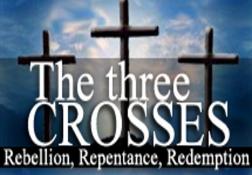 February 06 2018
REPENTANCE AND REDEMPTION: Luke 15:11-32
February 06 2018
REPENTANCE AND REDEMPTION: Luke 15:11-32
This call to repent was continued by Jesus in telling people that they had to leave their former ways of life and follow him.
Read more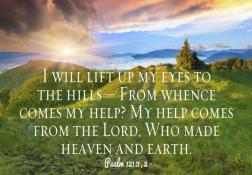 February 02 2018
PSALM 121
February 02 2018
PSALM 121
It is likely that the author may be on the verge of a journey and has to traverse the hills and he is thinking of the dangers of robbers besetting him.
Whatever the thoughts that inspire him the poet is placing his confidence in the Lord who extends kindness and protection to his people and ably governs all that is in heaven and earth. Nowhere is the petitioner beyond the divine Presence or aid.
Read more January 24 2018
Traveling with a Sword
January 24 2018
Traveling with a Sword
This late stage indolence may have Biblical comparisons if not origins. Moses wandered with his people for 40 years before settling down in an encampment just shy of the promised land (Deut. 33-34). David's journeys, initially spurred by a jealous Saul, waned in his later years as he repaired to his chamber with a Shunammite woman (I Kings 1: 3). Though Paul traveled throughout the Roman world, the rest of the Apostles seem to have stayed in one place after leaving Jerusalem.
Read more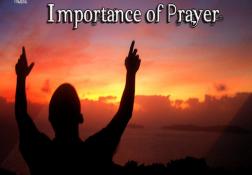 January 24 2018
THE IMPORTANCE OF PRAYER: 2 Thessalonians 3:1-5
January 24 2018
THE IMPORTANCE OF PRAYER: 2 Thessalonians 3:1-5
Prayer is at the heart of the Christian life. Prayer is counter-cultural. All our instincts and training prompt us to activism. It is hard for us to be still and to learn how to pray. All the books I read on successful leadership emphasize the initiatives that we must plan and implement if we are to fulfill our goals in life. We all have “to do” lists we must complete every day. There is always so much to do.
Read more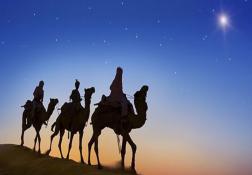 January 14 2018
BY THE LEADING OF A STAR
January 14 2018
BY THE LEADING OF A STAR
How beautifully this collect portrays our Lord Jesus: First by a heavenly sign, a star, an emblem of striking and sovereign glory. Jesus emits a bright radiance that is set before mankind in a lofty and distant star that draws nearer and nearer. The false prophet Balaam, for all of his religious deviancy, was constrained to point to the coming Son of God as a star. "I see him, but not now; I behold him but not near.
Read more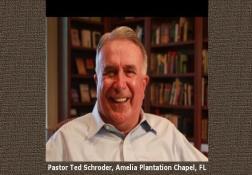 December 26 2017
WHO ARE YOU? John 1: 19-34
December 26 2017
WHO ARE YOU? John 1: 19-34
Swiss theologian, Emil Brunner (1889-1966) wrote: "Man's view of himself determines his life along with his circumstances." In his magisterial work on the nature of humanity: Man in Revolt, published in the middle of World War II, he contrasts the various views of man current in Western culture:
Darwin's view that man is to be viewed as a biological animal.
Marx's view that man is merely an economic and political unit.
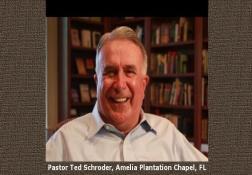 December 20 2017
THE MIRACLE OF THE INCARNATION: John 1:14,18
December 20 2017
THE MIRACLE OF THE INCARNATION: John 1:14,18
This is the unique miracle of the Incarnation, i.e. the embodiment of God on earth. The Word is the creative command of God: "In the beginning was the Word, and the Word was with God, and the Word was God" (John 1:1). The Word created the world -- "And God said" and it was so. The Word is the self-revelation of God, the reason of God, the knowledge of God, the meaning of life. Without the Word there would be no language to explain anything. The Word gives definition to thought.
Read more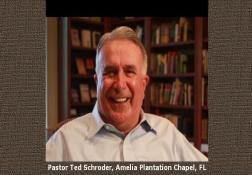 December 12 2017
LIGHT IN THE DARKNESS: Matthew 4:12-17
December 12 2017
LIGHT IN THE DARKNESS: Matthew 4:12-17
The manner and place of his coming answers many of these questions. Jesus began his short ministry of three years in Galilee, the region around the lake which measured 14 miles long and 7 miles across. Galilee was a fertile area that supported a dense population in 204 villages. It was far from Jerusalem and the heart of Judaism and it was called Galilee of the Gentiles because of the mixture of ethnic groups and the influence of the Roman and Greek cultures.
Read more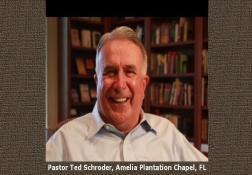 November 28 2017
HOW CAN WE RECOVER FROM SUFFERING? - Psalm 13
November 28 2017
HOW CAN WE RECOVER FROM SUFFERING? - Psalm 13
The Psalms are full of those questions and wrestle with the realities of suffering in life. In Psalm 13 David peppers God with the questions that trouble him.
First, the suffering caused by absence and silence of God.
How long, O LORD? Will you forget me forever?
How long will you hide your face from me?
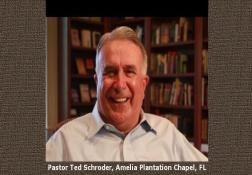 November 15 2017
WHAT IS THE CHURCH? 1 Peter 2: 4-12
November 15 2017
WHAT IS THE CHURCH? 1 Peter 2: 4-12
You will note that this definition has nothing to say about organization, budgets, staff, programs, buildings, or any of the other activities that we associate with the church. It says nothing about our racial, ethnic, social and gender identity. It transcends all other identities, where we come from, who we are, what we have been. It defines the church as something that God does. He chooses a community of people.
Read more


